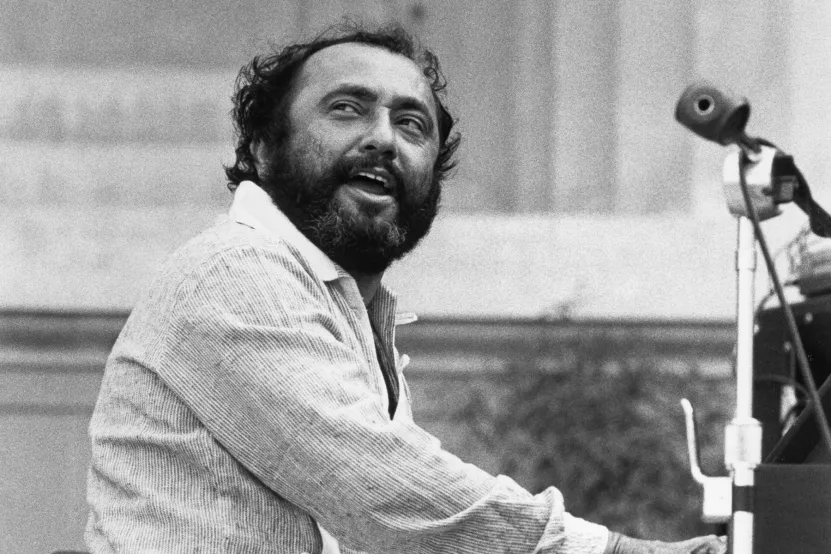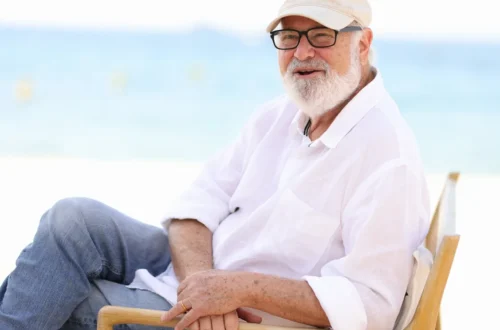Eddie Palmieri, the legendary pianist and composer whose fusion of Latin rhythms with jazz harmonies redefined the sound of salsa and Latin jazz for generations, has died. He was 88. A Bronx native born to Puerto Rican parents, Palmieri was a rebel from the start, challenging musical orthodoxy with an exuberant, percussive piano style and an ear tuned to experimentation. From the smoky clubs of New York to stages around the world, Palmieri’s impact on Afro-Caribbean music was profound, innovative, and enduring.
Palmieri launched his first band, La Perfecta, in 1961, creating a signature sound that was anything but traditional. He eschewed the typical string-heavy charanga format and instead introduced a trombone-based horn section that gave his music a brassy, muscular edge. This choice, which some considered radical at the time, would go on to influence the orchestration of salsa music throughout the 1960s and 1970s. He was a musical architect who built bridges between genres—fusing Cuban son with bebop, traditional Puerto Rican rhythms with avant-garde jazz. His compositions were labyrinthine but still accessible, complex yet utterly danceable.
Palmieri’s live performances were equal parts virtuosity and electricity. His hands would blur across the keyboard, conjuring both syncopated montunos and jazz dissonances, often in the same phrase. At the heart of his artistry was a deep respect for Afro-Caribbean rhythms, which he elevated through harmonic sophistication and a fearless commitment to experimentation. He embraced dissonance, extended solos, and polyrhythms with an abandon that felt more at home in free jazz than in the dance halls of El Barrio. And yet, no matter how complex the arrangement, the groove never got lost.
He won his first Grammy Award in 1975 for The Sun of Latin Music, becoming the first Latin musician to win in the new Best Latin Recording category. He would go on to win nine more over his career, spanning Latin jazz, salsa, and instrumental performance. But for Palmieri, accolades were secondary. His mission was always about honoring the past while pushing the music forward. He paid tribute to pioneers like Arsenio Rodríguez and Thelonious Monk in equal measure, often citing them as twin poles of inspiration.
Though often grouped with salsa icons like Willie Colón and Tito Puente, Palmieri occupied a space all his own. He wasn’t just a bandleader—he was a philosopher of rhythm. He frequently spoke of the “science” behind music, of clave as both spiritual force and mathematical structure. His compositions, such as “Azúcar,” “Muñeca,” and “Vámonos Pa’l Monte,” are master classes in tension and release, grounded in tradition but pulsing with innovation.
Palmieri was also a fierce advocate for Afro-Caribbean culture and identity. Through his music, he celebrated the contributions of Black and brown artists who had long been marginalized in both jazz and Latin music spheres. He often collaborated with percussionists, singers, and horn players who shared his vision of transcending boundaries—geographical, musical, and cultural. His ensemble was less a band than a living laboratory for rhythmic exploration, and he mentored countless younger musicians who would go on to shape the future of Latin music.
Even in his later years, Palmieri remained restless, always looking ahead. He continued performing well into his 80s, often with younger sidemen, his energy undimmed. When asked why he never stopped, he would smile and say that the music wouldn’t let him. It’s hard to imagine the Latin jazz landscape without him in it, tinkering with a new arrangement, cackling at some polyrhythmic surprise he’d slipped into a chart, or shouting with joy from behind the piano as the congas took flight.
Eddie Palmieri didn’t just play music—he reimagined its very structure. He turned dance floors into classrooms, nightclubs into sanctuaries, and listeners into believers. His death leaves a silence in the clave, but his spirit pulses on in every tumbao, in every syncopated chord voicing, and in every young pianist trying to follow the trail he blazed.




